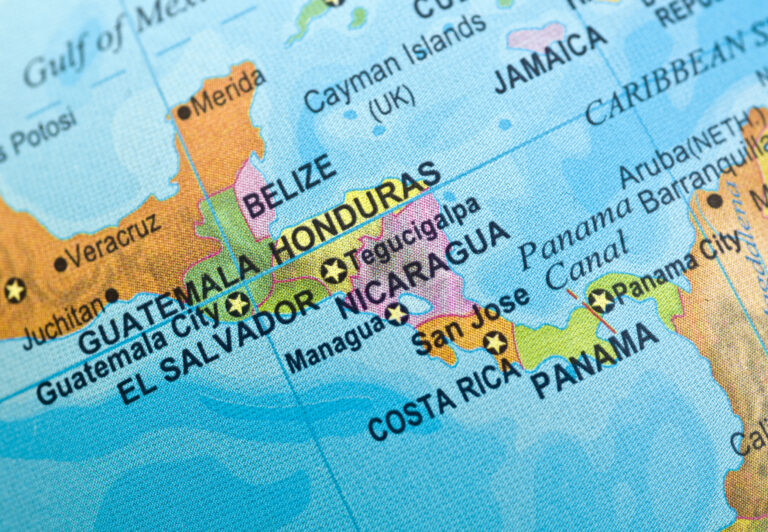As Beijing continues to vigorously pursue its infamous one-child
policy, PRI has gathered evidence showing that Chinese villagers who
cannot afford to pay these fines have their “illegal”
children abducted and sold by Chinese population control officials.
It is well known that those who violate the one-child policy
have sometimes been subjected to coerced abortions or, if they have
already given birth, have been forced to pay punitive fines and have
been sterilized. For example, the birth control regulations posted in
one town warned that those who violate the one-child policy shall be
contracepted or sterilized:
Under the direction of the birth control
bureaucracy and the technical personnel (assigned thereto), those
married women of childbearing age who have already had one child
shall be given an IUD; those couples that have already had a
second or higher order child shall be sterilized. [Italics
added]
This sterilization directive was confirmed in conversation
with villagers. One woman, a Chinese minority, told us that the
consequence of having a third child would be that the government
“would take measures to sterilize you.”
The fines now imposed on violators of the one-child policy
are, by any standards, enormous. In one Chinese county, declared by
the UNFPA to be a “Model Birth Control County,” we
photographed a billboard of birth control regulations that warned:
Those who illegally reproduce … will be
assessed, when their illegal behavior is discovered, a
“social compensation fee” based on a unit calculated
from a year’s salary for urban dwellers and based on a year’s
income after expenses for rural dwellers.Those who illegally give birth to one child will be
assessed a fine 3 to 5 times their annual income; those who illegally
give birth to a second child will be assessed a fine from 5 to 7 times
their annual income; those who illegally give birth to a third child
will be assessed a fine from 7 to 9 times their annual income; those
who give birth to 4 or more illegal children will be assessed a fine
extrapolated from the above schedule of multiples. For those who
illegally take in a child, have an extramarital birth, or have an out
of wedlock birth, both parties involved will be assessed a
“social compensation fee” according to the above schedule
of (income) multiples.
That these fines were actually imposed was clear from our
discussions with ordinary Chinese. We were told again and again that
violators are fined “tens of thousands of
renminbi,” or “20,000 or 30,000
renminbi.” These are enormous sums of money by Chinese
standards. One woman reported that she and her husband had been forced
to take out a 10-year loan to pay the 25,000 renminbi fine
that had been assessed for each of her two illegal daughters. To pay
off this “child mortgage,” her husband had been forced to
go to work in the city.
When we asked what would happen if a couple couldn’t afford to pay
the fine, we were told that offenders would be visited by population
control officials who would “seal off” their homes, and
possibly even destroy them, as punishment for non-payment.
But these punishments pale in comparison with reports of child
abduction. In Lipu county, another UNFPA Model Birth Control County,
located in northern Guangxi province, we were told by a village
official that “At the present time, if you don’t pay the fine,
they come and abduct the baby you just gave birth to and give it to
someone else.”
This practice of child abduction has recently been confirmed by
the Chinese government. According to a report in the Caixin Century
magazine, authorities in the southern Chinese province of Hunan have
begun investigating a report that population control officials had
seized at least 16 babies born in violation of strict family planning
rules, sent them to state-run orphanages, and then sold them abroad
for adoption. “Before 1997, they usually punished us by tearing
down our houses for breaching the one-child policy, but after 2000
they began to confiscate our children,” the magazine quoted
villager Yuan Chaoren as saying.
The children, reportedly from Longhui county near Hunan province’s
Shaoyang city, had been abducted by who accused their parents of
breaching the one-child policy or illegally adopting children. The
local family planning office then sent the children to local
orphanages, which listed them as being available for adoption, the
report said, adding the office could get 1,000 renminbi or more for
each child. The orphanages in turn receive $3,000 to $5,000 for each
child adopted overseas, money that is paid by the adoptive parents.
The magazine reported that at least one migrant worker said she had
found her daughter had been adopted abroad and was now living in the
United States.
It is worth noting that these two reports come from the same
general area of China and occurred in neighboring provinces. Lipu
county, where we heard about the practice of abducting and selling
“illegal” children, is located in northern Guangxi
province not far from the Hunan border, while Shaoyang is located near
the southern border of Hunan not far from the Guangxi border.
Local officials deny any involvement in child trafficking. But it
is well known that the so-called “job responsibility
system” requires them to rigorously enforce the one-child
policy, and that their success (or failure) in this area will
determine future promotions (or demotions). Abducting and selling an
“illegal” baby or child would not only enable an official
to eliminate a potential black mark on his record, it would allow him
to make a profit at the same time. In this way the one-child policy,
through its system of perverse and inhumane rewards and punishment,
encourages officials to violate the fundamental right of parents to
decide for themselves the number and spacing of their children.
Child trafficking has occurred in other countries that offer
children for adoption, most notably in Cambodia, Nepal and Vietnam,
where the abuses are so rampant that the U.S. has put a moratorium on
adoptions. It may be time to consider a similar moratorium on
adoptions from China.










